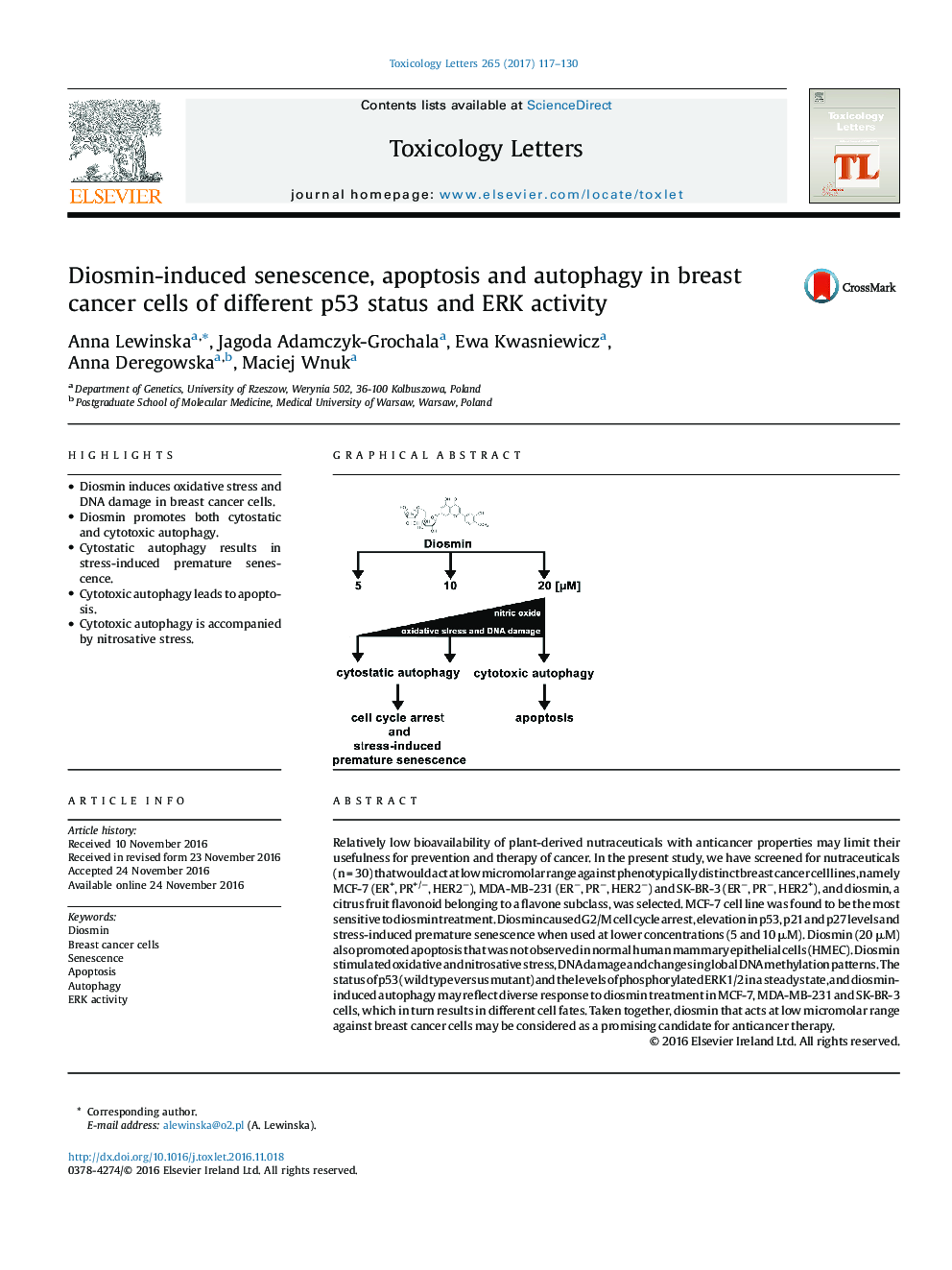| کد مقاله | کد نشریه | سال انتشار | مقاله انگلیسی | نسخه تمام متن |
|---|---|---|---|---|
| 5562262 | 1562608 | 2017 | 14 صفحه PDF | دانلود رایگان |

- Diosmin induces oxidative stress and DNA damage in breast cancer cells.
- Diosmin promotes both cytostatic and cytotoxic autophagy.
- Cytostatic autophagy results in stress-induced premature senescence.
- Cytotoxic autophagy leads to apoptosis.
- Cytotoxic autophagy is accompanied by nitrosative stress.
Relatively low bioavailability of plant-derived nutraceuticals with anticancer properties may limit their usefulness for prevention and therapy of cancer. In the present study, we have screened for nutraceuticals (n = 30) that would act at low micromolar range against phenotypically distinct breast cancer cell lines, namely MCF-7 (ER+, PR+/â, HER2â), MDA-MB-231 (ERâ, PRâ, HER2â) and SK-BR-3 (ERâ, PRâ, HER2+), and diosmin, a citrus fruit flavonoid belonging to a flavone subclass, was selected. MCF-7 cell line was found to be the most sensitive to diosmin treatment. Diosmin caused G2/M cell cycle arrest, elevation in p53, p21 and p27 levels and stress-induced premature senescence when used at lower concentrations (5 and 10 μM). Diosmin (20 μM) also promoted apoptosis that was not observed in normal human mammary epithelial cells (HMEC). Diosmin stimulated oxidative and nitrosative stress, DNA damage and changes in global DNA methylation patterns. The status of p53 (wild type versus mutant) and the levels of phosphorylated ERK1/2 in a steady state, and diosmin-induced autophagy may reflect diverse response to diosmin treatment in MCF-7, MDA-MB-231 and SK-BR-3 cells, which in turn results in different cell fates. Taken together, diosmin that acts at low micromolar range against breast cancer cells may be considered as a promising candidate for anticancer therapy.
110
Journal: Toxicology Letters - Volume 265, 4 January 2017, Pages 117-130